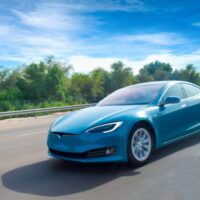Special Considerations in Accidents Involving Electric and Fuel Cell Vehicles

Often people picture traditional gas-powered vehicles when they think about traffic accidents. But as electric and fuel cell vehicles become more common on Tennessee roads, accident recovery and personal injury claims are evolving too.
If you’ve been in an accident involving an electric vehicle (EV) or a hydrogen fuel cell vehicle, it’s important to understand how these types of vehicles may affect your recovery process. Share the impacts an accident has had on you, both physically and financially, with a Nashville personal injury lawyer in order to secure a full and fair settlement.
Understanding Electric and Fuel Cell Vehicles
Electric vehicles (EVs), such as those made by Tesla, Rivian, or Nissan, are powered by rechargeable lithium-ion batteries. The batteries store electricity that drives one or more electric motors. Owners charge these vehicles through a wall outlet or a charging station.
Fuel cell vehicles (FCVs), like the Toyota Mirai or Hyundai Nexo, use hydrogen gas stored in tanks. The hydrogen reacts with oxygen in a fuel cell to create electricity, which powers the vehicle’s motor. The only byproduct is water vapor, making these vehicles extremely clean.
While both use electricity for propulsion, the source and handling of that power differ significantly. These differences can play a major role after an accident.
Complexities in Vehicle Recovery and Repair
After an accident, traditional recovery teams are trained to handle gasoline-powered vehicles. Electric and fuel cell vehicles require specialized handling because of the risks associated with their power systems.
- For electric vehicles, high-voltage battery packs can remain charged after a collision, posing a serious risk of electric shock or fire. Towing and repair crews must follow strict safety protocols to disconnect power systems safely.
- In fuel cell vehicles, hydrogen is highly flammable, so damaged tanks or lines must be assessed with extreme caution. Specialized recovery teams are often needed to ensure safe transport and repair.
Because electric and fuel cell vehicles rely on advanced technology, their repair and replacement costs are often higher than those for traditional vehicles. Parts such as battery systems or hydrogen tanks are expensive, and not all body shops are equipped to repair them.
The physical injuries from an EV or FCV crash can mirror those from any other collision but additional risks may arise. Battery fires can release toxic fumes, and hydrogen leaks can create explosion hazards. Your medical records will play a key role in linking any exposure-related symptoms to the accident.
Liability after a collision can become complicated when advanced technology is involved. Software updates, autonomous features, and power management systems can all play a role in how an accident occurred. A Nashville personal injury lawyer familiar with emerging vehicle technologies can investigate these factors, ensuring all responsible parties are identified and held accountable.
Could you use legal guidance after an EV accident? Don’t assume it’s just another car crash. The recovery process can be more complex but with the experienced attorneys at Calhoun Law, PLC on your side you can ensure every technical and financial detail is addressed. Schedule your confidential consultation today.



